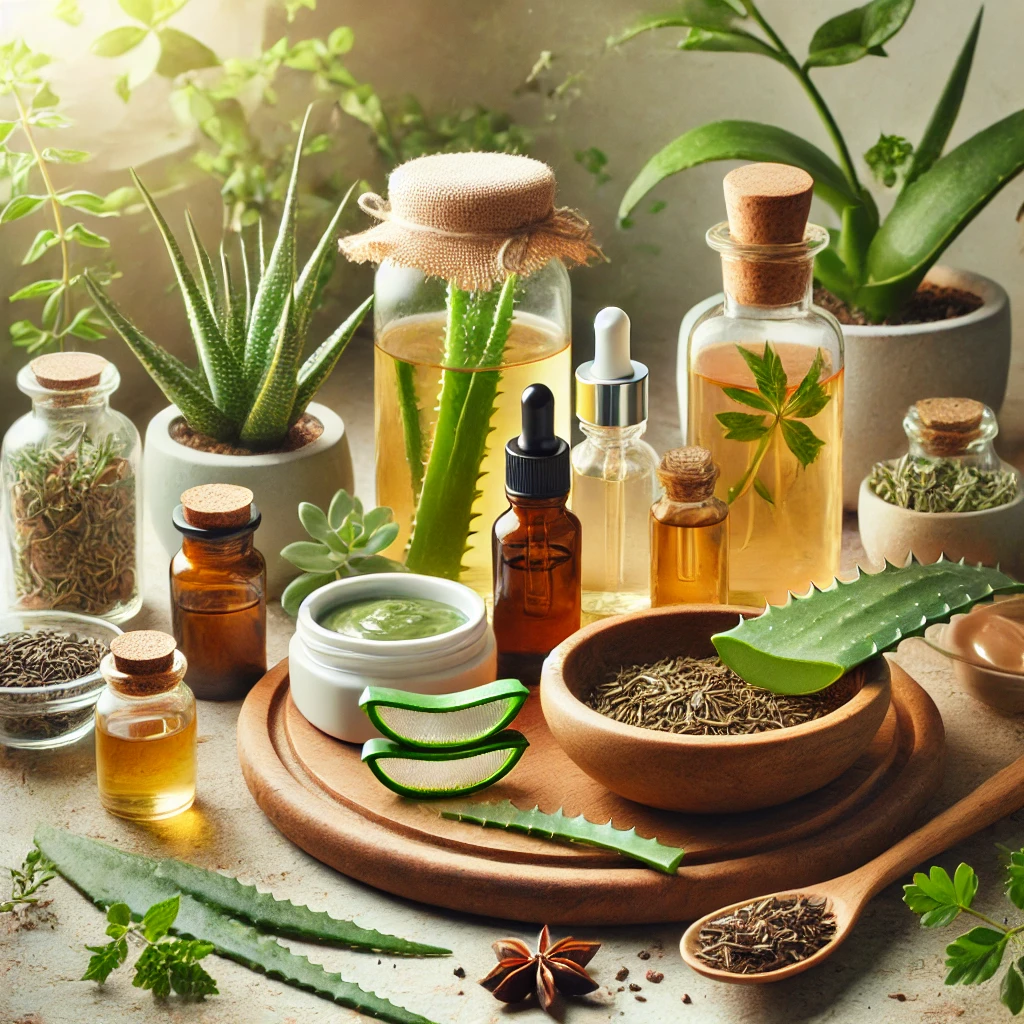
Hormonal acne can be a frustrating condition that affects people of all ages, especially during periods of hormonal changes like puberty, menstruation, pregnancy, or menopause. But the good news is that you don’t always need to rely on harsh chemicals or prescription medications to treat it. There are plenty of natural hormonal acne treatments that can help manage breakouts effectively.
In this article, we will explore various natural methods to treat hormonal acne, from adjusting your diet to adopting holistic skincare routines.
Understanding Hormonal Acne
Hormonal acne is triggered by fluctuations in hormones, particularly androgens like testosterone. These hormones can increase the production of sebum (oil) in the skin, leading to clogged pores and acne outbreaks. This type of acne usually appears on the lower face, jawline, and chin, but it can also occur on the back or chest.
Common causes include:
- Puberty: Hormonal surges during adolescence are a common culprit.
- Menstrual Cycle: Hormonal fluctuations during menstruation can lead to breakouts.
- Stress: Stress triggers the release of cortisol, a hormone that can worsen acne.
- Polycystic Ovary Syndrome (PCOS): A condition that leads to high levels of androgens and can result in acne.
1. Diet and Hormonal Acne
The food you eat has a direct impact on your skin. Several studies have shown that certain foods can either trigger or reduce acne breakouts. Here are some dietary adjustments to consider:
A. Increase Anti-Inflammatory Foods
A diet rich in anti-inflammatory foods can help reduce hormonal acne. These include:
- Leafy greens: Spinach, kale, and arugula are packed with antioxidants.
- Fatty fish: Salmon, mackerel, and sardines are high in omega-3 fatty acids.
- Turmeric: Known for its anti-inflammatory properties, turmeric can help calm irritated skin.
B. Reduce Sugar and Dairy
High-glycemic foods like refined sugar and processed carbs can spike insulin levels, leading to an increase in sebum production. Similarly, dairy products, particularly milk, have been linked to hormonal imbalances that exacerbate acne. Try switching to plant-based milk alternatives like almond or oat milk.
C. Include Zinc and Probiotics
Zinc is an essential mineral that helps regulate hormone levels and has anti-inflammatory properties. You can increase your intake of zinc through supplements or foods like pumpkin seeds and chickpeas. Probiotics, found in fermented foods like yogurt and kimchi, can balance gut health and reduce acne from within.
2. Natural Skincare for Hormonal Acne
While a clean diet can improve skin health from the inside, adopting a natural skincare routine can work wonders on the outside. Here are some natural treatments to add to your skincare routine:
A. Tea Tree Oil
Tea tree oil is a powerful antibacterial agent that can help reduce acne-causing bacteria on the skin. Use a diluted version (5-10%) and apply it to the affected areas. It’s a great alternative to harsher chemical treatments like benzoyl peroxide.
B. Aloe Vera
Aloe vera is well-known for its soothing and healing properties. Applying aloe vera gel can reduce inflammation, redness, and swelling associated with hormonal acne.
C. Apple Cider Vinegar
This natural astringent can balance the pH of your skin, reducing excess oil production. Be sure to dilute it with water before applying it to your face to avoid irritation.
D. Green Tea
Green tea is rich in antioxidants and can reduce sebum production when applied topically. You can make a DIY green tea toner or use skincare products that contain green tea extract.
3. Hormonal Balance and Lifestyle Changes
Since hormonal acne is linked to internal imbalances, addressing lifestyle factors is key in treating it. Here’s what you can do:
A. Reduce Stress
Stress management is critical, as stress hormones like cortisol can worsen acne. Consider relaxation techniques such as:
- Yoga: Promotes mental well-being and reduces stress.
- Meditation: A few minutes of mindfulness daily can make a significant difference.
- Exercise: Regular physical activity helps regulate hormone levels and improve skin circulation.
B. Get Enough Sleep
Lack of sleep can disrupt hormone levels, making acne worse. Aim for at least 7-8 hours of quality sleep every night. A regular sleep schedule helps regulate cortisol and other hormones responsible for breakouts.
C. Hydration
Staying hydrated helps flush out toxins and keeps the skin clear. Drinking plenty of water supports skin elasticity, reduces dryness, and maintains overall skin health.
4. Herbal Remedies for Hormonal Acne
Some herbal remedies have been shown to balance hormones and reduce acne naturally. Consider incorporating the following herbs into your routine:
A. Spearmint Tea
Spearmint has anti-androgenic properties, which can help reduce the level of androgens (male hormones) that contribute to acne. Drinking spearmint tea regularly may reduce acne breakouts.
B. Vitex (Chasteberry)
Vitex is often used to balance female hormones, especially during menstruation or menopause. It’s available in supplement form and can help regulate hormonal fluctuations that lead to acne.
C. Evening Primrose Oil
Rich in gamma-linolenic acid (GLA), evening primrose oil helps regulate hormonal imbalances and reduce inflammation. It’s available as an oral supplement or topical oil.
Conclusion: A Holistic Approach to Hormonal Acne
Treating hormonal acne naturally requires a combination of internal and external care. By focusing on a balanced diet, natural skincare remedies, and lifestyle adjustments, you can achieve clearer skin without the use of harsh chemicals or medications. Every individual’s skin is unique, so patience and consistency are key. With the right approach, hormonal acne can be effectively managed, and your skin will thank you for it!
FAQs About Natural Hormonal Acne Treatment
- Can diet alone cure hormonal acne?
Diet plays a crucial role in managing hormonal acne, but a comprehensive approach that includes skincare and lifestyle changes works best. - How long does it take to see results from natural treatments?
Natural treatments can take anywhere from a few weeks to a couple of months to show visible results. Patience is key. - Is hormonal acne a lifelong issue?
For some individuals, hormonal acne can persist into adulthood, but it can be managed with the right lifestyle and treatment. - What foods should I avoid to prevent hormonal acne?
Foods high in sugar, dairy, and processed carbohydrates can worsen hormonal acne. Opt for whole foods, rich in antioxidants. - Can natural remedies cause irritation?
Some natural remedies like tea tree oil or apple cider vinegar can cause irritation if not used correctly. Always perform a patch test before full application.
